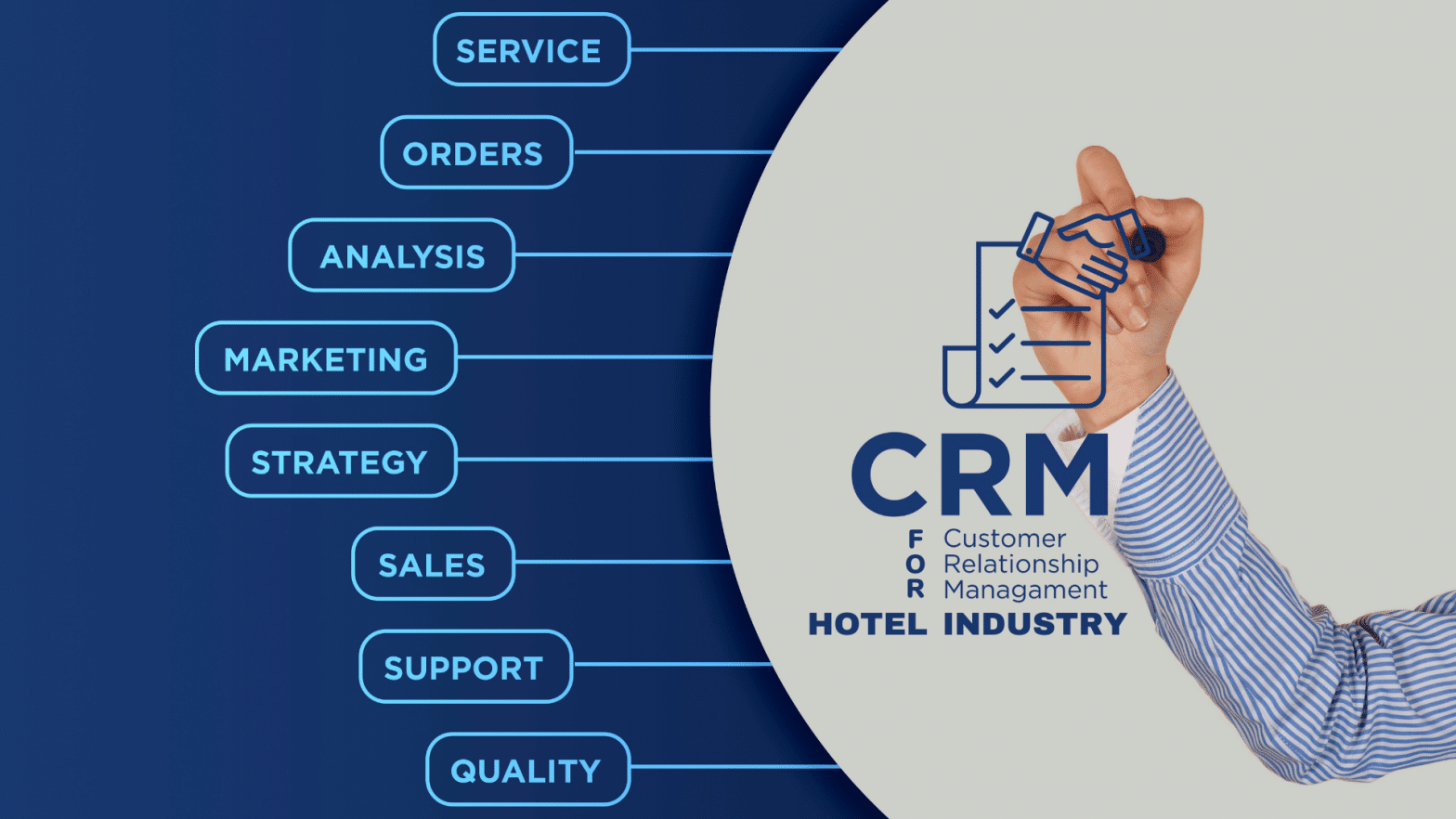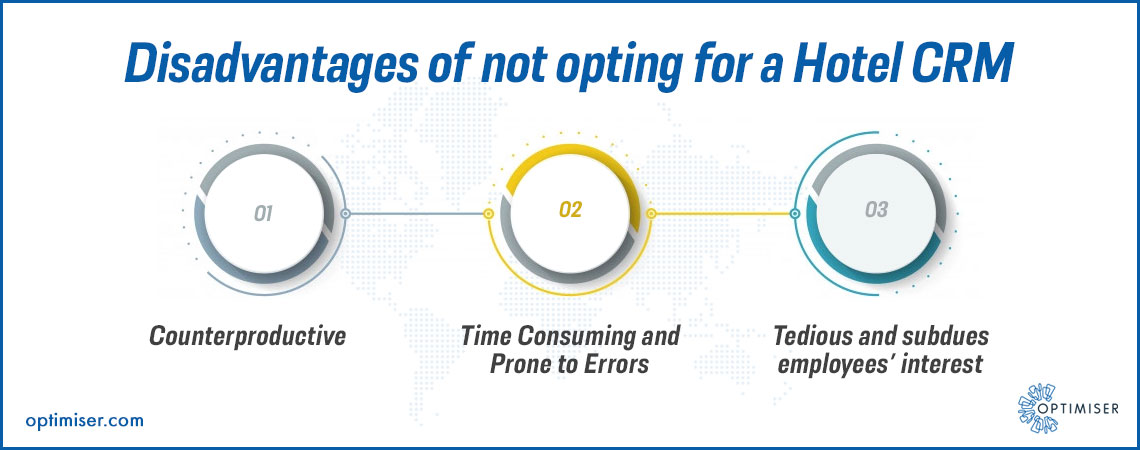Crm hotel industry – In the ever-competitive hotel industry, CRM (Customer Relationship Management) systems have emerged as indispensable tools for enhancing guest experiences, boosting revenue, and driving profitability. By leveraging data-driven insights and personalized interactions, hotels can create a loyal customer base that drives repeat business and positive word-of-mouth.
CRM systems for hotels offer a comprehensive suite of features designed to streamline operations, improve communication, and enhance guest engagement. These systems enable hotels to capture and manage guest data, track interactions, and provide tailored experiences that cater to individual preferences and needs.
CRM in the Hotel Industry
Customer relationship management (CRM) systems are essential tools for hotels looking to improve guest experiences, increase revenue, and build lasting relationships. By tracking guest preferences, interactions, and history, hotels can tailor their services to meet the needs of each individual guest.
Benefits of CRM Systems for Hotels
- Improved guest experiences:CRM systems help hotels create personalized experiences for each guest. By tracking guest preferences, hotels can provide tailored recommendations, offer relevant promotions, and address specific needs.
- Increased revenue:CRM systems can help hotels increase revenue by identifying opportunities for upselling and cross-selling. By tracking guest spending habits, hotels can identify high-value guests and offer them exclusive deals and promotions.
- Improved profitability:CRM systems can help hotels improve profitability by reducing costs and increasing efficiency. By automating tasks such as guest check-in and checkout, hotels can free up staff time to focus on providing excellent customer service.
Key Features of Hotel CRM Systems

Hotel CRM systems offer a wide range of features tailored to the specific needs of the hospitality industry. These features are designed to streamline operations, enhance guest experiences, and drive revenue.
The essential features of a hotel CRM system include:
- Centralized guest data management:A single, unified platform to store and manage all guest information, including personal details, preferences, and history.
- Personalized marketing campaigns:Targeted marketing campaigns based on guest preferences and behavior, such as automated email campaigns and personalized offers.
- Sales and revenue management:Tools to track and manage reservations, optimize pricing, and increase revenue through upselling and cross-selling.
- Guest service and loyalty programs:Features to provide personalized guest service, manage loyalty programs, and reward repeat business.
- Integration with other systems:Ability to integrate with other hotel systems, such as property management systems (PMS), channel management systems, and payment gateways.
Comparison of Different CRM Systems
Different CRM systems offer varying features and capabilities. Here is a comparison of some popular hotel CRM systems based on their key features:
| Feature | System A | System B | System C |
|---|---|---|---|
| Centralized guest data management | Yes | Yes | Yes |
| Personalized marketing campaigns | Yes | Yes | No |
| Sales and revenue management | Yes | No | Yes |
| Guest service and loyalty programs | Yes | Yes | Yes |
| Integration with other systems | Yes | Yes | No |
Choosing the Right CRM System
Choosing the right CRM system for a specific hotel’s needs depends on several factors, including:
- Hotel size and type:The size and type of hotel will determine the scale and complexity of the CRM system required.
- Specific business needs:The hotel’s unique business needs, such as the focus on leisure or business travelers, will influence the features required in a CRM system.
- Budget:The cost of the CRM system should align with the hotel’s budget and ROI expectations.
- Ease of use:The CRM system should be user-friendly and easy to adopt by hotel staff.
- Vendor support:The quality of vendor support is crucial for ongoing system maintenance and updates.
Implementation of CRM Systems in Hotels
Implementing a CRM system in a hotel requires careful planning and execution. Here are the key steps involved:
- Define your goals and objectives:Determine what you want to achieve with your CRM system. This could include improving guest satisfaction, increasing revenue, or streamlining operations.
- Choose the right CRM system:There are many different CRM systems on the market, so it’s important to choose one that is right for your hotel’s needs. Consider factors such as the size of your hotel, the number of guests you serve, and your budget.
- Implement the CRM system:This involves installing the software, training your staff, and integrating the CRM system with other hotel systems.
- Monitor and evaluate your CRM system:Once your CRM system is up and running, it’s important to monitor its performance and make adjustments as needed.
Best Practices for Training Staff on How to Use a CRM System
Training your staff on how to use a CRM system is essential for its successful implementation. Here are some best practices:
- Provide comprehensive training:Make sure your staff understands all the features and functionality of the CRM system.
- Use a variety of training methods:Use a combination of online training, classroom training, and on-the-job training to ensure that your staff learns in the way that is most effective for them.
- Provide ongoing support:Once your staff has been trained, make sure you provide ongoing support to answer their questions and help them troubleshoot any problems.
Tips for Integrating a CRM System with Other Hotel Systems
Integrating your CRM system with other hotel systems can help you streamline operations and improve guest service. Here are some tips for integrating your CRM system:
- Use an integration platform:An integration platform can help you connect your CRM system with other hotel systems, such as your property management system, booking engine, and loyalty program.
- Use APIs:APIs (application programming interfaces) allow you to connect your CRM system with other systems directly.
- Work with a vendor:If you’re not comfortable integrating your CRM system yourself, you can work with a vendor who can help you.
Data Management in Hotel CRM Systems

Data management is a critical component of hotel CRM systems, as it enables hotels to collect, store, and use guest data to improve their marketing and sales efforts. By leveraging guest data, hotels can gain a deeper understanding of their customers’ preferences, behaviors, and needs, allowing them to tailor their marketing campaigns and sales strategies accordingly.
Best Practices for Collecting, Storing, and Using Guest Data
- Collect data from multiple sources:Hotels should collect guest data from various sources, including reservation systems, loyalty programs, surveys, and social media. This comprehensive data collection approach provides a more complete view of each guest’s profile.
- Store data securely:Guest data should be stored securely to protect it from unauthorized access or breaches. Hotels should implement robust data security measures, such as encryption and access controls, to ensure the confidentiality and integrity of guest information.
- Use data to personalize marketing campaigns:Hotels can use guest data to personalize their marketing campaigns, such as sending targeted emails or offering tailored promotions based on past preferences or behaviors. Personalized marketing campaigns are more effective in engaging guests and driving conversions.
- Use data to improve sales strategies:Guest data can also be used to improve sales strategies. For example, hotels can identify high-value guests and target them with exclusive offers or loyalty programs. Additionally, data can be used to identify potential upsell opportunities, such as recommending room upgrades or additional services.
Examples of How Hotels Can Use Data to Improve Their Marketing and Sales Efforts
- Example 1:A hotel can use guest data to identify its most loyal customers and offer them exclusive discounts or loyalty rewards. This strategy helps retain valuable guests and encourage repeat business.
- Example 2:A hotel can use guest data to track guest preferences, such as room type, amenities, and activities. This information can be used to create personalized recommendations for future stays, increasing guest satisfaction and loyalty.
- Example 3:A hotel can use guest data to identify potential upsell opportunities. For example, a hotel can offer room upgrades or additional services to guests who have a history of spending more on amenities or services.
Trends in Hotel CRM
Hotel CRM systems are constantly evolving to meet the changing needs of the industry. Some of the latest trends in hotel CRM technology include:
- Artificial intelligence (AI) and machine learning (ML): AI and ML are being used to automate tasks, personalize guest experiences, and improve decision-making.
- Mobile CRM: Mobile CRM systems allow hotel staff to access guest information and manage their relationships on the go.
- Cloud-based CRM: Cloud-based CRM systems are becoming increasingly popular due to their scalability, flexibility, and cost-effectiveness.
- Integrated CRM: CRM systems are being integrated with other hotel systems, such as property management systems (PMS) and revenue management systems (RMS), to provide a more comprehensive view of the guest experience.
- Self-service CRM: Self-service CRM portals allow guests to access their own information and make changes to their reservations or loyalty accounts.
AI and ML in Hotel CRM
AI and ML are having a significant impact on hotel CRM systems. These technologies can be used to:
- Automate tasks, such as responding to guest inquiries, sending out marketing emails, and managing loyalty programs.
- Personalize guest experiencesby tailoring recommendations and offers to each guest’s individual preferences.
- Improve decision-makingby providing hotel staff with insights into guest behavior and preferences.
Predictions for the Future of Hotel CRM, Crm hotel industry
The future of hotel CRM is bright. As technology continues to evolve, we can expect to see even more innovative and effective CRM solutions. Some predictions for the future of hotel CRM include:
- Increased use of AI and ML: AI and ML will become even more prevalent in hotel CRM systems, enabling hotels to automate more tasks and provide more personalized guest experiences.
- Greater integration with other hotel systems: CRM systems will become even more integrated with other hotel systems, providing a more comprehensive view of the guest experience.
- Increased use of self-service CRM: Self-service CRM portals will become more popular, allowing guests to access their own information and make changes to their reservations or loyalty accounts.
Summary: Crm Hotel Industry

As the hotel industry continues to evolve, CRM systems will play an increasingly critical role in driving success. By embracing the latest technologies and leveraging data-driven insights, hotels can create a seamless and personalized guest experience that fosters loyalty, drives revenue, and ensures long-term profitability.
Clarifying Questions
What are the key benefits of using a CRM system in the hotel industry?
CRM systems provide numerous benefits for hotels, including improved guest experiences, increased revenue, enhanced communication, and streamlined operations.
How can CRM systems help hotels increase revenue?
CRM systems enable hotels to track guest preferences, personalize marketing campaigns, and upsell services, leading to increased revenue and profitability.
What are the essential features of a CRM system for hotels?
Essential features of a hotel CRM system include guest data management, communication tools, marketing automation, and reporting and analytics.